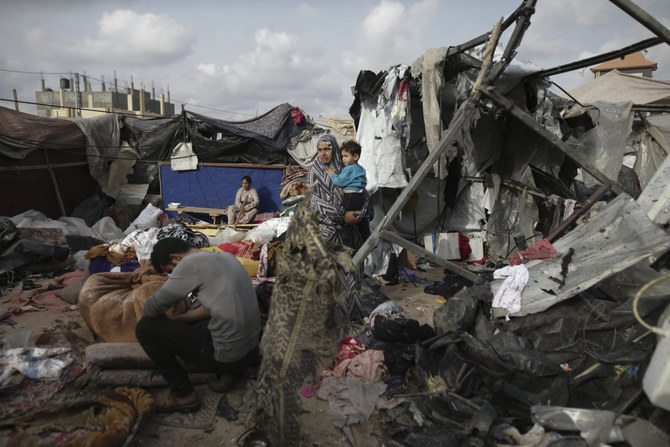Dya-Eddine Said Bamakhrama
The war on Gaza that Israel launched last October, killing nearly 40,000 Palestinians, mostly women and children, and destroying cities and infrastructure, reaffirms the pressing need for global and regional solidarity, and the highest state of alert to intensify efforts toward achieving lasting peace and security in this sensitive region.
There are immense human and material losses caused by the war, which continues to have painful negative impacts as the entire world stands powerless before it, and the adverse effects are clearly reflected on global peace and stability. The war has exposed the ugliness and brutality of the Israeli occupation, disproving Israel’s claims to be an oasis of democracy in a disparate environment. This falsehood was highlighted by protests in many cities and universities worldwide, expressing outrage over the mass killing of unarmed civilians in Gaza.
It is shameful that the international community remains a mere spectator to this injustice, brutal destruction, and barbaric killing that defies international laws. While we condemn the global silence, we must commend the positive steps taken by Spain, Norway, and Ireland to recognize the state of Palestine. The decision by these three European countries is a significant stride toward achieving global peace and security, as the Palestinian cause is one of the most significant causes worldwide. Its exacerbation over decades has been a major cause of many crises in the world and the region due to the occupation and displacement of the Palestinian people. We should also appreciate the efforts by the Arab-Islamic committee established during the Arab-Islamic summit in Riyadh last November, chaired by the Saudi minister of foreign affairs. Its efforts aim to achieve a ceasefire, the release of hostages, the delivery of aid and UN recognition of the state of Palestine based on 1967 borders.
The Israeli government opposes any peace plans that acknowledge Palestinian rights. This means no progress will be achieved unless Israeli political forces become convinced of the need to abandon the notion of hegemony and the imposition of force. The events in Gaza, notwithstanding the staggering number of casualties, have proved that military force will not provide the desired solution sough by the Israeli right wing.
Today, more than ever, it is imperative to join hands at various levels to find a just and lasting solution to the Palestinian cause based on the two-state solution. The use of violence and excessive force has proved that there can be no rest or stability without sustainable peace. It is crucial that the Palestinians take sincere and serious steps to consolidate their ranks and strengthen their united movement toward this goal. Resolving the Palestinian issue and achieving peace in the Middle East require strong political will and sustained efforts by all parties. This represents a significant challenge, but it is not impossible if sincere intentions and a commitment to justice and equality are present. Peace is the only way to achieve stability and prosperity in this sensitive region of the world.
In this regard, we can draw on the experiences of countries with a history of sponsoring peace, such as Saudi Arabia, which enjoys unparalleled acceptance in the Islamic world and has sponsored many peace talks to resolve crises in the Middle East. The Kingdom actively sought solutions to the Arab-Israeli conflict, presenting two key initiatives in 1981 and in 2002. It also participated in the Madrid Conference in 1991 and endorsed King Abdullah bin Abdulaziz’s peace initiative approved by the Arab summit conference in Beirut in 2002. It is fair and just to acknowledge that from the era of King Abdulaziz to the reign of King Salman and Crown Prince Mohammed bin Salman, Saudi Arabia has stood by the Palestinian people since the onset of their plight. A notable example of this support is King Saud, who offered Ahmed Shaqiri, the representative of the Palestine Liberation Organization, the Saudi seat at the UN, allowing him to defend his country’s cause not only as a Palestinian representative but also from his position as a representative of Saudi Arabia.
My own country, Djibouti, it is renowned for its pioneering role in peace and reconciliation efforts in the Horn of Africa, and for hosting refugees fleeing conflicts in neighboring countries. Since gaining its independence in 1977, Djibouti has defended it, and continues to do so, in various international and regional forums. Everyone must understand that Israel will not enjoy peace unless it recognizes the legitimate rights of the Palestinian people.
The continuation of the Arab Peace Initiative is contingent upon Israel’s beginning to fulfill its commitments within the framework of international references to achieve peace in the region. The starting point must be an immediate and unconditional ceasefire in Gaza and the exchange of prisoners and hostages, as a prelude to finding a just and comprehensive solution that ends the suffering of the oppressed Palestinian people by declaring their independent state recognized by the UN with East Jerusalem as its capital. I call on all countries that have not yet recognized the state of Palestine to do so. This will encourage peace, contribute to achieving stability and development, and put an end to the decades-long suffering of the Palestinian people.
Arab News







